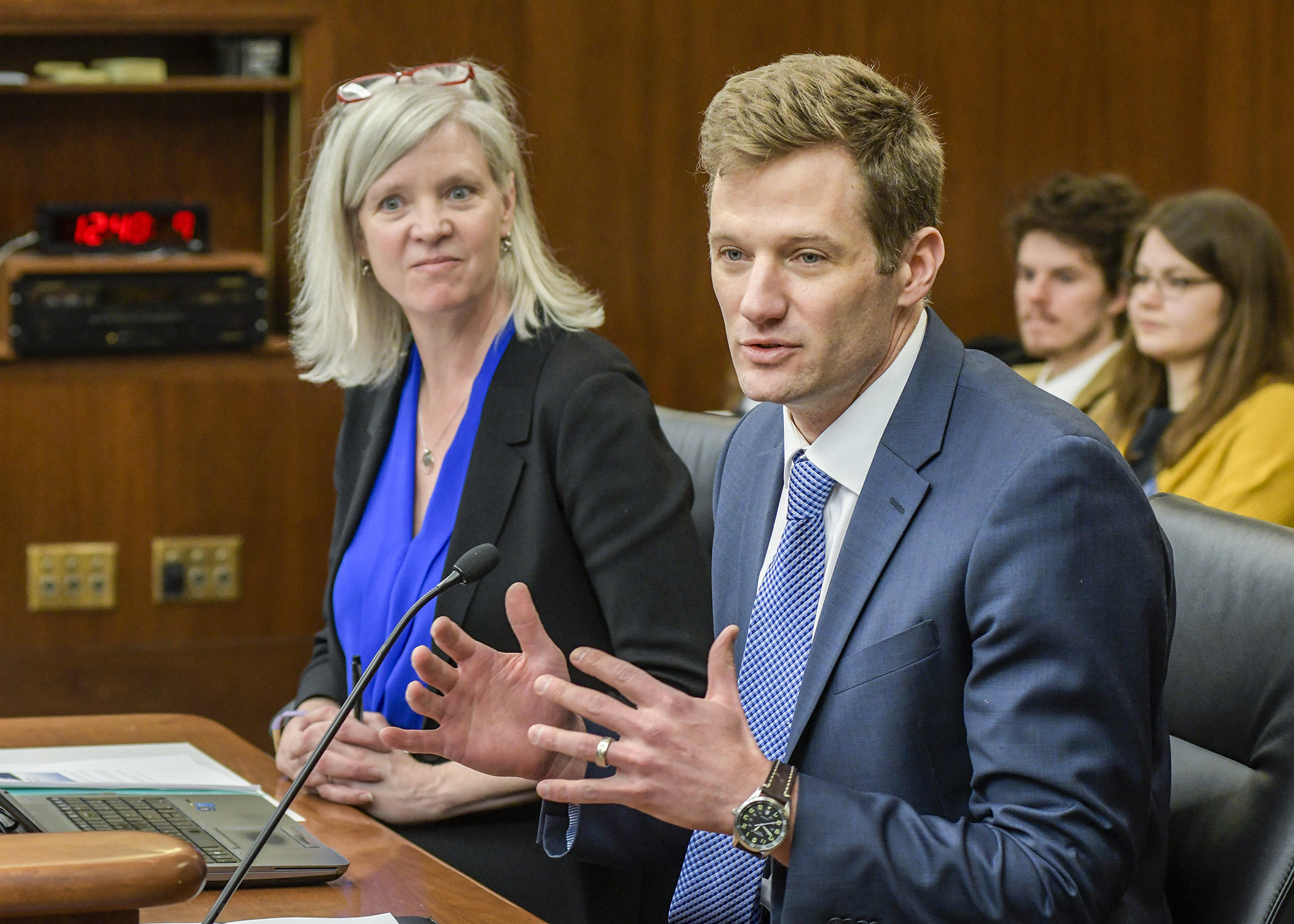Division receives update on border-to-border broadband access

Over 90 percent of Minnesotans now have access to broadband internet, however, reaching the last 10 percent will be the trickiest.
Danna Mackenzie, executive director of the Office of Broadband Development, presented an overview on the state’s broadband infrastructure and programs during the House Greater Minnesota Jobs and Economic Development Finance Division hearing Wednesday.
In 2014, the state set a goal of providing broadband access to all Minnesotans by 2022. One way it’s helping accomplish this is through the Border-to-Border Broadband Development Grant Program.
The program provides funding to incentivize existing broadband providers to build infrastructure in areas of the state that are unserved and underserved. The grants are competitively awarded and match up to 50 percent of the cost, which includes project planning, permits, construction and labor, installation, testing and engineering. In each year the grant program has been offered, applications have exceeded the available funding.
Mary Ehmke, president of KMTelecom, benefitted from the grant program, saying that it was critical in being able to bring broadband access to customers in rural or hard-to-reach locations.
“Without the state’s grant I’m not sure if we would have ever built out to these customers, and, if we had, it certainly would’ve taken us a lot longer to do so,” she said.
Between 2014 and 2017, the Legislature appropriated approximately $86 million to the program. An additional $15 million was allocated to the program, but never appropriated as it was included in the vetoed 2018 omnibus supplemental spending bill.
Rep. Sandy Layman (R-Cohasset), shared her support for the broadband program, and asked how the program was impacted by not receiving the 2018 appropriations.
Mackenzie said her agency was unable to make any new investments, or to conduct a 2018 grant cycle. Instead, they spent additional time following-up on existing projects and providing additional oversight. “There were 70 live projects that kept the office very busy over the interim year as far as due diligence and site visits,” she said.
In his recently released budget recommendations, Gov. Tim Walz included $70 million for the broadband grant program. The proposal requests $35 million in Fiscal Year 2020 and $35 million in Fiscal Year 2021.
Ehmke and other Minnesota Telecom Alliance representatives supported continued funding of the grant program, saying it’s essential in enabling them to continue extending broadband into more areas.
“I hope the state continues to provide grant money to enhance connectivity to rural communities,” Ehmke said. “We have done a lot over the past four years of the program, but can tell you we still have a lot more to do.”
Related Articles
Search Session Daily
Advanced Search OptionsPriority Dailies
Legislative leaders set 2026 committee deadlines
By Lisa Kaczke Legislative leaders on Tuesday officially set the timeline for getting bills through the committee process during the upcoming 2026 session.
Here are the three deadlines for...
Legislative leaders on Tuesday officially set the timeline for getting bills through the committee process during the upcoming 2026 session.
Here are the three deadlines for...